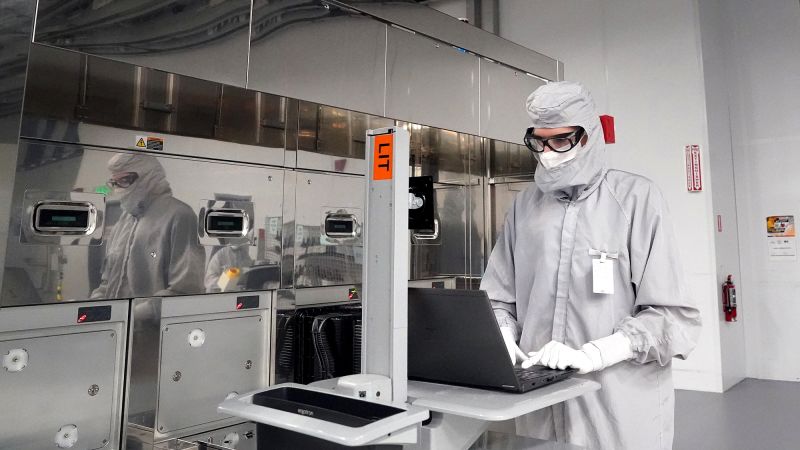The United States has recently implemented new export controls on advanced technology, including quantum computers, to align with restrictions imposed by international partners. These controls will not only impact quantum computing items but also equipment for producing advanced semiconductors, additive manufacturing items for metal components, and GAAFET technology. According to Alan Estevez from the Bureau of Industry and Security, these measures aim to ensure that national export controls remain effective and in line with technological advancements while working alongside international partners such as the United Kingdom, who have already imposed similar controls.
Washington trade lawyer Kevin Wolf emphasized the significant impact of the controls on quantum computers and related technology. These new controls include unique reporting requirements for foreign national employees involved in quantum computer development in the US. Additionally, the controls on GAAFET technology specifically target its production rather than the design of integrated circuits, aiming to enhance chip performance and reduce power consumption. While the US is striving to strike a balance with workforce rules, concerns have been raised about the potential impact on hiring decisions due to reporting requirements, as mentioned by Celia Merzbacher, executive director of the Quantum Economic Development Consortium.
Merzbacher highlighted the importance of expertise in quantum technology and the limited supply of talent in this field. While the US government aims to attract top talent to work at US firms, there are concerns that the reporting requirements may deter small companies from hiring foreign nationals. This could lead to a situation where companies opt to hire only US citizens to avoid dealing with reporting requirements, ultimately limiting their access to valuable talent. It is essential to find a balance between national security concerns and the need for expertise in advanced technologies to ensure that the US remains competitive in the global market.
The new export controls indicate a shift towards tighter regulations on cutting-edge technologies, reflecting the growing importance of protecting intellectual property and national security interests. While these measures may pose challenges for companies in terms of compliance and hiring decisions, they also highlight the need for a strategic approach to managing advanced technologies in a global context. It is crucial for the US to work collaboratively with international partners to address shared concerns and ensure that export controls are effective in addressing emerging threats while facilitating innovation and economic growth.
As countries around the world continue to enhance their export controls on advanced technologies, it is essential for the US to stay at the forefront of these developments to protect its technological edge and national security. By implementing controls on quantum computing, semiconductor production, and other critical technologies, the US is taking proactive steps to safeguard its innovation ecosystem. However, it is crucial to strike a balance between security concerns and the need for talent and innovation to ensure that the US remains a leader in the global technology landscape. Through collaboration with international partners and strategic policymaking, the US can navigate the complexities of export controls while promoting technological advancement and economic growth.













